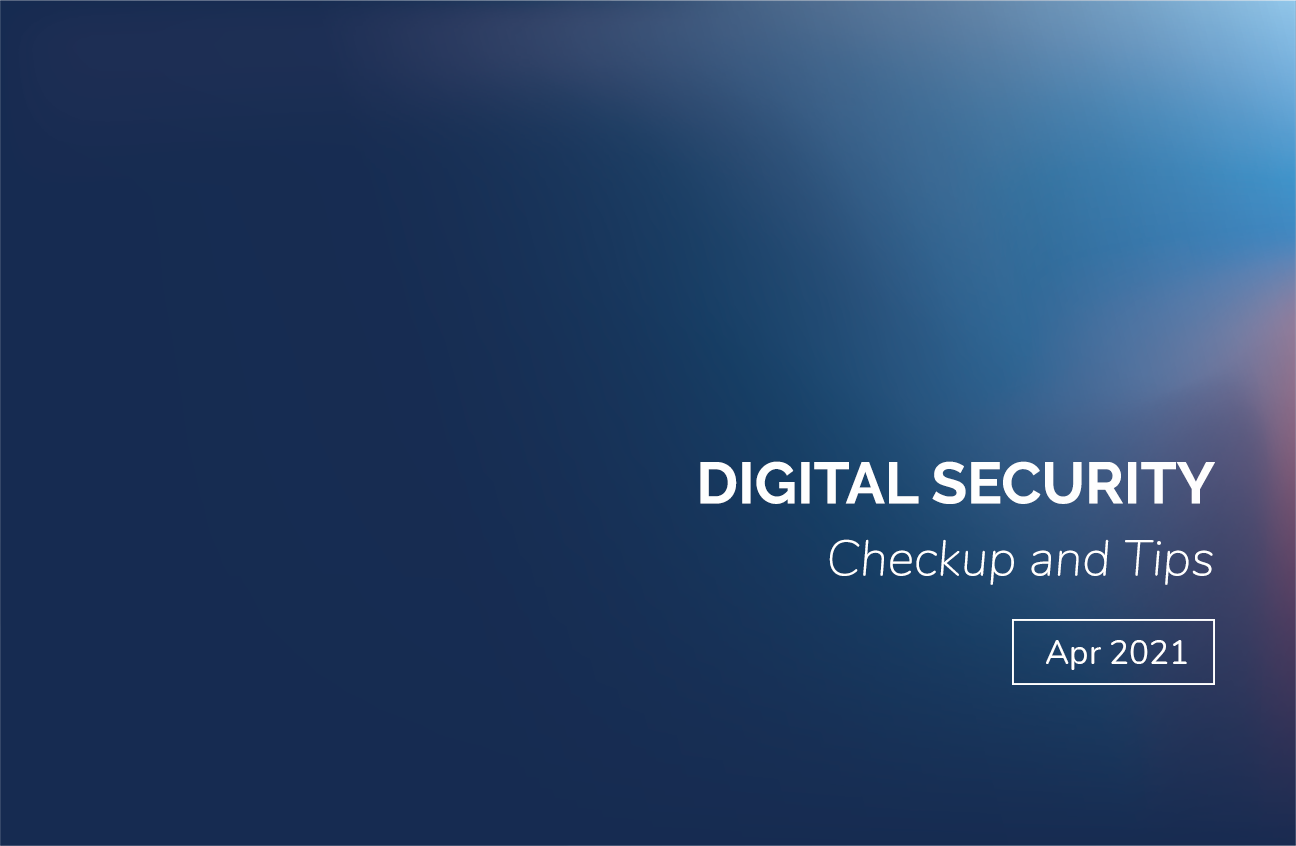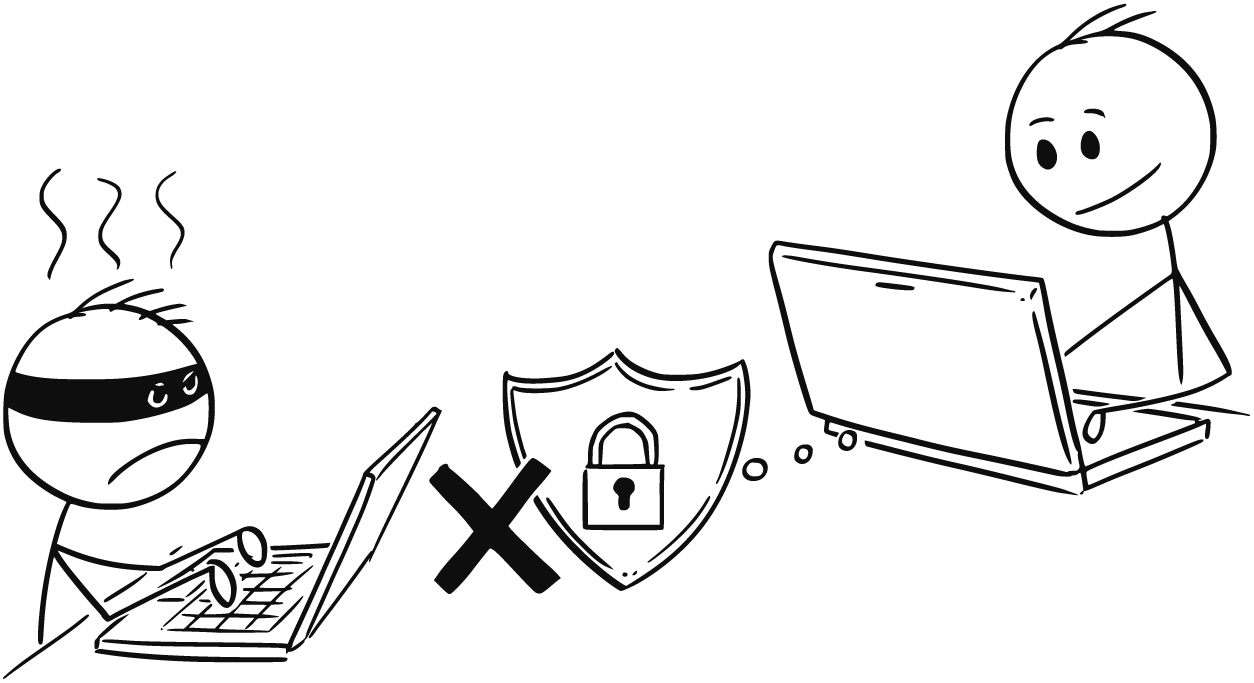Accept
2021 Digital Security Checkup and Tips - April Edition

Digital Estate Planning with Final Security is about protecting you and your loved ones from cybercrime, ensuring your important files are found and protecting your legacy. Get your free account and online will today; no credit card required.
Sign Up
Browser Extensions
As a user of digital technology, web browsers are arguably the most used app on our devices and computers. Whether you are looking up information, the weather, shopping or more, our vehicle to do so is by using a web browser such as Chrome, FireFox, Safari, Brave or Edge.
Browser extensions are a way in which we can customize and extend the functionality of our web browser. Google Chrome is the most popular browser with a 63.21% market share (Oberlo, 2021). Extension Monitor reports that there are 188,620 extensions for Google Chrome, with over 1 billion installs. When a technology has this level of adoption and reach, it makes it a prime target for criminals.
What are browser extensions?
Browser extensions are small applications that can be installed in your browser of choice to extend your browser with additional features and abilities. Each browser has their own method of installing these extensions. For example, Google Chrome has the Chrome Web Store. In this store you can search and install extensions with the click of a button.
Why would someone install a browser extension?
Browser extensions can be really useful, for a variety of reasons. One example is, Cite This For Me: Web Citer. This extension will automatically create website citations in the APA, MLA, Chicago, or Harvard referencing styles at the click of a button. This is a useful and time saving extension for anyone who is actively writing.
Other times, websites may prompt you to install their extension. In this scenario, it is still a one-click process to enable and install the extension. A common example of this is on coupon and promo code websites. They will prompt the ease and simplicity of automatically getting codes added to the website where you are shopping, without the hassle of having to go and manually find and test the codes.
Why are web browser extensions dangerous?
Your search history and activity on the internet contains a vast array of direct and indirect data about you. Depending on what access the extension requests during installation, it could and most likely would capture all your keystrokes, including passwords, search history, credit card and other sensitive information. Whether the extension is reputable or not, they often have to send your data to their servers, or another third party, to execute their functionality. Anytime your data is sent to another party, there is risk involved. Sensitive or not, you have no idea or control of what happens once it leaves your device.
Another common risk of extensions is that they can become compromised. A once valid and reputable extension could become corrupted and turn into malware, which puts you at an even greater risk from criminals.
How to reduce the risk of browser extension
How can you reduce the risk when using a browser extension? is important to be aware and selective with which extensions you install, and what you allow them to do. These steps can help you keep your browser safe and private:
- When installing a browser extension, take the time to read what permissions and the scope of its abilities. Use common sense. If what it is asking for seems too much for what it's intended functionality, it most likely is.
- Reputable developers of these extensions are aware of the risks. Oftentimes, you can visit the developer's website and read about how your data is collected and used.
- During installation, specifically look to see if your data is sent to a third party, or is all handled locally (on your machine).
- Periodically, remove old and unused or unneeded extensions. Overtime, a once valid and safe extension could become compromised.
Take Our Privacy Crash Course
Learn more about How to Protect Yourself and Stay Safe Online From: Phishing, Identity Theft, Social Engineering, Hacking, Malware and Scams
Never leave devices unattended with an open session
Screensavers are not just for fun. It is imperative that you set your screens to automatically lock. In the US 2021 capital riots, there was video in the national news coverage of a rioter sitting at a congress member's desk with an open and active terminal. The person sitting at the unattended computer had full access to email and all files, literally anything on the computer. This computer most likely contained not just sensitive information such as credits card numbers, but data that could impact national security.
Your machine may not have access to nuclear secrets; however, your normal and sensitive data on your machine is critically important to keep safe for you and your family.
Make sure you have a screen saver or computer set to lock with a small time duration for it to activate. 2-5 minutes is a good timeframe for personal use. If your machine contains protected information or highly sensitive data, that timeout needs to be even shorter.
Don't email sensitive information
Emailing sensitive information is dangerous. Email is highly insecure and is one of the easiest ways for information to get compromised or stolen, or accidentally shared or viewed. This risk has increased significantly over recent years with our email being available everywhere. The problem is that sending email is easy; but to do it right, it will add some inconveniences. What are some of the ways that you can safely share sensitive information without email?
- Over the phone (voice call)
- Send a text message
- Encrypted emails
- Password protected file(s)
- Sharing a document through an online service
Backup your data
Whether you are a lite or heavy user of technology, we are creating data on our devices that would be devastating if it were to be lost. If you've never felt the panic of realizing that your files are gone, you're lucky! Our hope in this short section is to raise your awareness and provide some cheap and easy ways to protect your important files.
What is a backup?
In its simplest form, a backup is a place where you keep a copy of your important files. There is no shortage of ways in which you can backup your data; however, some provide more protection than others. Let's take a quick look at some of the strategies you can use to protect your data.
How can I make a backup of my data?
Making a backup is not difficult, but the process of backing up your data is different with each type of device. Computer type, make and model can all change the way in which you will backup your device. In the list below, we'll list out some of the most common approaches.
- Removable media: flash drives, external harddrives
- Cloud storage: Apple/Google cloud, Dropbox
- Backup services: Backblaze, Amazon S3 or Glacier
To learn more about how to work with your specific device, try Googling your device and one of the bolded words in the above list. Here are a couple of examples:
- "Apple iPhone cloud storage backup"
- "Windows cloud storage backup"
- "Samsung Galaxy cloud storage backup"
How likely am I to need a backup?
Life can be unpredictable, and the unexpected will impact us all at different points in our lives. In Norton's article (Norton, 2021), they provide these interesting facts and figures that help give us a sense of common events that could require us to turn to a backup:
- 1 in 10 computers are infected with viruses each month
- 113 phones are lost or stolen every minute
- 70 million cell phones are lost each year
- Laptops are stolen every 53 seconds in the U.S
- It was estimated that ransomware attacked a business every 14 seconds in 2019
Verify SSL
SSL is what makes the data between your device and the website secure. Modern browsers have been easier to verify if that connection is protected with SSL. You can verify yourself by either of the following methods:
- Look at the website address, does it have "HTTPS" and not just "HTTP". The "s" means it is a secure connection.
- Click the lock icon near where the website address is located. This will provide you with more information about the site and whether the connection is secure.
Do not enter any information into a website that is not secure. It is even more important that you do not enter any sensitive information (SSN, credit cards, etc) into a site without an SSL connection.
Most Popular Web Browsers in 2021 [Jan '21 Update] | Oberlo. (2021). From: https://www.oberlo.com/statistics/browser-market-share#:~:text=As%20of%20January%202021%2C%20Googles,percent%2C%2043.4%20percentage%20points%20behind.
Breaking Down the Chrome Web Store. (2021). Retrieved 22 March 2021, From https://extensionmonitor.com/blog/breaking-down-the-chrome-web-store-part-1
Data backup: Why it's important + strategies to protect your information. (2021). From: https://us.norton.com/internetsecurity-how-to-the-importance-of-data-back-up.html
Digital Estate Risk Assessment Calculator
According to AARP, it can take six months for financial institutions, credit-reporting bureaus and the Social Security Administration to receive, share or register death records. When you consider that timeframe and that cybercrime is now more profitable than the global illegal drug trade, your digital estate is the perfect target for criminals. We need to protect and organize our digital lives in preparation of our digital death.
How at Risk...
Is Your Digital Estate?
Get your free personalized digital estate planning report in just a few minutes.
Start Your Free Assessment
BANK-GRADE SECURITY
Your privacy, safety and security is our top priority and at the core of everything we do. Your data is encrypted and protected at every level. From typing on your computer, through the Internet and into our application and servers.
Learn more about how we secure your data.


